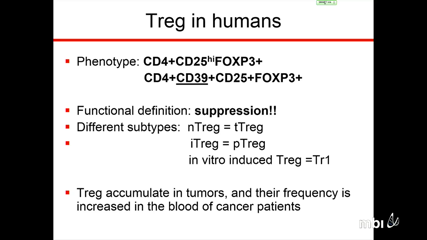MBI Videos
Theresa Whiteside
-
 Theresa Whiteside
Theresa WhitesideRegulatory T Cells (Tregs) accumulating in the peripheral circulation and tumor sites of patients contribute to tumor escape from the host immune system. Tregs encompass subsets of immune cells with distinct phenotypic and functional properties. Whereas natural (n) or thymic-derived (t) Tregs regulate responses to self-antigens, inducible (i) or peripheral (p) Tregs generated and expanded in regulatory microenvironments control immune responses to a broad variety of antigens.
Human Tregs accumulating in cancer comprise ‘bad’ subsets, which inhibit antitumor immunity, and ‘good’ anti-inflammatory subsets, which maintain tolerance to self and benefit the host. Future therapeutic strategies targeting Tregs will need to discriminate between these Treg subsets and will need to consider reprogramming strategies instead of Treg elimination. Re-establishment of effective antitumor immune responses in cancer patients without disturbing a normal homeostatic T-cell balance will greatly benefit from insights into inhibitory pathways engaged by human tumors.
